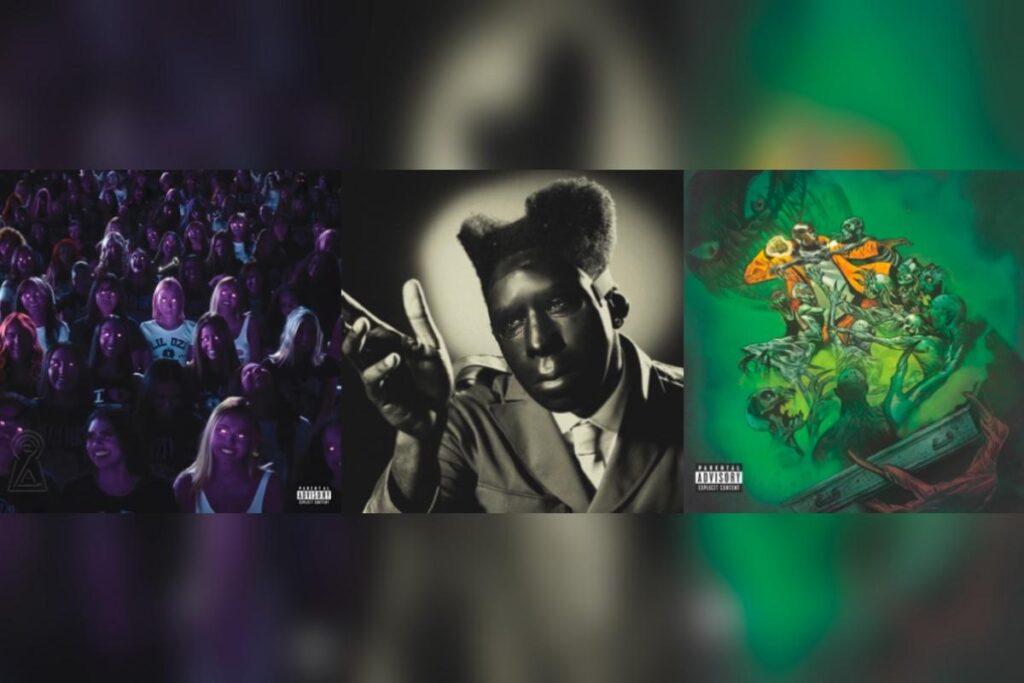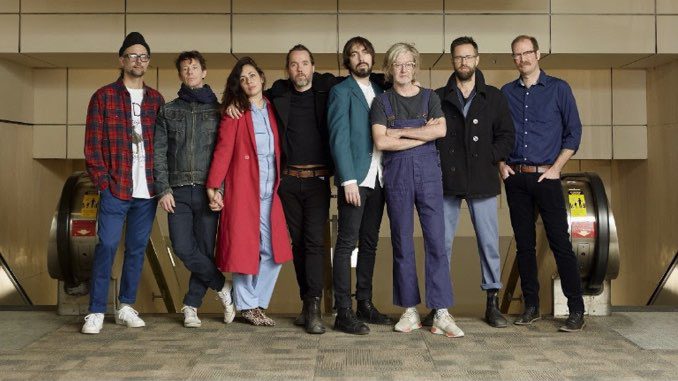September is here, which means we’re completing our monthly ritual of revisiting the best music from the last 30-or-so days. August delivered a smattering of great rock albums, but now it’s time to turn our attention to folk, country, Americana, bluegrass and all the other subgenres under the “roots” umbrella. We were treated to new releases from veterans like Kathleen Edwards and The Avett Brothers as well as newcomers like Caylee Hammack (and a posthumous release from Jason Molina). See the full list below.
The Avett Brothers: The Third Gleam
On their most recent Rick Rubin-produced album Closer Than Together, The Avett Brothers expressed their discontent for violence in the media, made a call for gun control (sort of), asked God to forgive America for our innumerable malfeasances and tried their hand at a real feminist anthem. While we know their intentions were good and true, these paltry plays at incorporating liberal politics into their increasingly pop-forward brand of nu-folk music did not necessarily go well for them. But their musings on the bleak state of the world and American politics sound much less strained on The Third Gleam, their 10th studio album and the highly anticipated (at least among fans) third installment in the Gleam series, which, in its first two iterations released in 2006 and 2008, respectively, brought us beauties like “If It’s The Beaches” and Avett classics like “Souls Like The Wheels.” While The Avett Brothers lineup typically consists of a robust group of players including fiddler Tania Elizabeth and cellist Joe Kwon, The Third Gleam finds Scott and Seth Avett playing in a paired-down trio with longtime bassist Bob Crawford. This lineup more closely resembles the band in its early days, when Scott, Seth and Bob played their bombastic country-rock songs in grimy venues across the Southeast. —Ellen Johnson
Caylee Hammack: If It Wasn’t For You
Caylee Hammack’s debut album begins with a good scolding. “You should’ve never come over,” she exclaims. “You should’ve left early and kept your hands to yourself / You knew better / You should’ve never promised me bliss if you couldn’t keep it.” Stand back—she’s breathing fire. But as the album opener, titled “Just Friends,” continues, it becomes clear that the issues in this relationship weren’t entirely to blame on the handsy guy. Hammack continues, “I should’ve listened to my mama / And not let you in my head / I should’ve told ya that I loved ya / But not let you in my bed.” Her predicament is a familiar one to anybody who hustled into a relationship with a friend too quickly. The 26-year-old Hammack wrote or co-wrote and produced all 13 tracks on If It Wasn’t For You, her debut album released earlier last month, and the Georgia native peels back the curtain on everything from failed friends-with-benefits arrangements and redhead stereotypes to existential woes and family issues (namely on “Family Tree,” which is akin to Kacey Musgraves’ “Family is Family”). —Ellen Johnson
Jason Molina: Eight Gates
It can be difficult to hear never-before-heard music by an artist who has since passed. But it can also offer a glimmer of beauty. Last month Secretly Canadian released the last known collection of Jason Molina songs recorded before his death due to alcoholism-related issues in 2013. Recorded in London, these nine songs don’t quite have the coherence of an album, but they all sound like Molina, featuring his signature humor and heartbreak. Featuring such interesting sounds as tropical bird chirps and Molina’s characteristically dry studio banter (“Alright, everybody shut up, this is my record,” he chimes on “The Crossroad + The Emptiness”), Eight Gates doesn’t necessarily feel fully complete, but that’s because it wasn’t. We never got to hear what Molina might have accomplished with these songs if he had survive. But we’re still damn lucky to have ‘em. —Ellen Johnson
Kathleen Edwards: Total Freedom
Kathleen Edwards always could write. The Canadian singer was spinning emotionally complex stories into compelling country-tinged rock songs while she was still in her teens, and for a while there, her vivid imagination and skill at evoking scenes and feelings outpaced her lived experience. By the time she released Voyageur in 2012, life had caught up, as it tends to do, and her fourth album was an excellent collection of songs about second thoughts that she wrote while her marriage was falling apart. By 2014, as the stress of a mid-level life in music increasingly weighed her down, Edwards ducked out from under her career anxiety for a while to open a coffee shop in her hometown near Ottawa and refocus her mental, physical and emotional energy. Total Freedom, her first new album in eight years, proves the break did her good. Edwards is sharp here as she runs through a wide range of emotions on songs with a strong, lived-in feel that wasn’t always there when she was younger. —Eric R. Danton
Ruston Kelly: Shape & Destroy
Shape & Destroy is not the first time Ruston Kelly’s journey has been captured in song. His debut—2018’s Dying Star—showcased his considerable melodic gifts and fearless honesty as it explored Kelly’s trip to and from rock bottom. It’s an album that’s equal parts harrowing and heartening, and it pointed the way for Kelly to deliver on his enormous promise as an artist. Shape & Destroy finds him on the right path, but not yet out of the woods. Nowhere is this more clear than in two back-to-back songs—“Alive” and “Changes”—that examine Kelly’s journey from two very different perspectives. “Looking at the flowers coming up from the ground through all of the rubble of everything that I tore down,” he sings in “Alive,” a slow-burning love song to life (and a supportive partner). One track later, however, he kicks off the strummy, upbeat “Changes” buried in the rubble. “What the hell am I doing down here?” Kelly sings. “I thought that I was finally in the clear. All it takes is once to make your demons reappear.” What a difference a couple of years, hard work, personal reflection and loving, supportive relationships make. Where Dying Star offered only glimmers of hope that Kelly’s garden would someday flourish, Shape & Destroy is a modestly verdant landscape as far as the eye can see—maybe not “tall and purposed” quite yet, but healthy, happy and headed that way. —Ben Salmon




